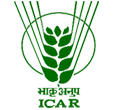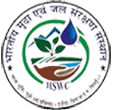ICAR-IISWC, Dehradun, sensitizing the farming communities on potential of improved poultry farming distributed month-old dual-purpose poultry chicks in Kalsi Block, on June 12, 2024
Reaching the Unreached: ICAR-IISWC Dehradun Promotes Livelihood Options Through Dual-Purpose Poultry Farming in Kalsi Block
The ICAR-Indian Institute of Soil and Water Conservation (IISWC), Dehradun, sensitizing the farming communities on potential of improved poultry farming distributed month-old dual-purpose poultry chicks in Kalsi Block, on 12.6.2024.
The initiative, as a part of the SC-SP program of ICAR-IISWC, was organized and coordinated by Dr. M. Muruganandam, Head, PME and KM Unit and the Coordinator of SC-SP and TSP program at Dehradun HQ of the Institute, along with Dr. Indu Rawat, Senior Scientist, and Dr. Sadikul Islam, Scientist. Dr Muruganandam informed that this systematic intervention was aimed to provide a sustainable source of income and nutritional support to the weaker sections of the rural communities, especially women, growing children and aged people.
This was a significant step towards enhancing livelihood security and income generation for farm women in the rural areas, in which improved traditional breed of dual-purpose Vanaraja chicks was distributed to 30 families in the villages of Kolhar, Somaya, Kofti, and Sundaraiya under Khatar Gram Panchayat, Kalsi Block, Dehradun.
The Vanaraja chicks, known for their high resilience and adoptability to environmental conditions and faster growth, are an ideal choice for backyard poultry farming. Each of the 30 families received one-month-old chicks, accompanied by demonstrations on rearing practices. This included designing rearing cages, appropriate feeding methods, and disease prevention strategies.
Dr. M. Muruganandam elaborated the benefits of the Vanaraja breed, emphasizing its dual-purpose nature, which not only provides eggs and meat but also meets the nutritional needs of the family in these households. Discussing the optimal cage designs, feeding routines, and preventive measures to protect the chicks from common diseases, infections and needed healthcare measures, he emphasized the need of water ad libitum and feeds to poultry birds for optimum feeding and growth.
Dr Indu Rawat, informed that the women in these villages have limited sources of income, and this program would open up new avenues for economic development. Dr Sadikul Islam hinted that by equipping the farm women with the knowledge and resources to rear improved breed of chickens, the initiative aims to empower women and improve the overall well-being of the families.
This program is one of such interventions implemented by ICAR-IISWC to improve the livelihoods of rural communities through innovative and sustainable agricultural practices. The intervention is expected to bring significant positive changes in the socio-economic status of the farm families. The beneficiary farmers expressed their interest on the new opportunity and hope exposed to them.









